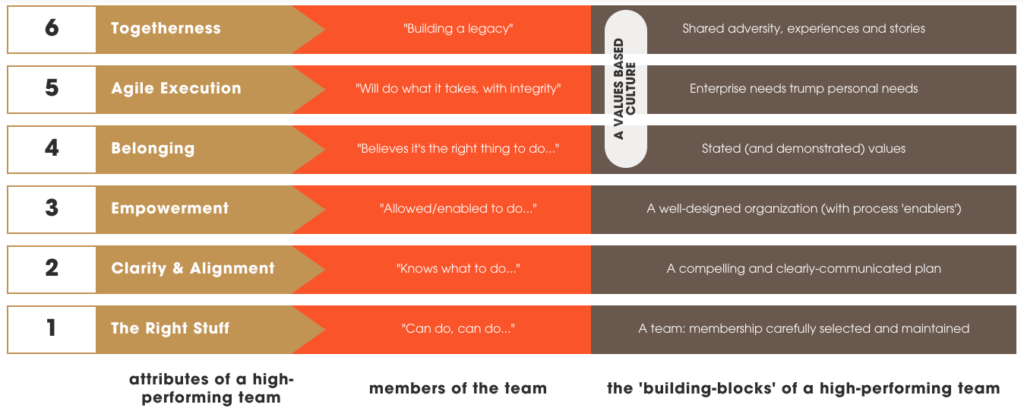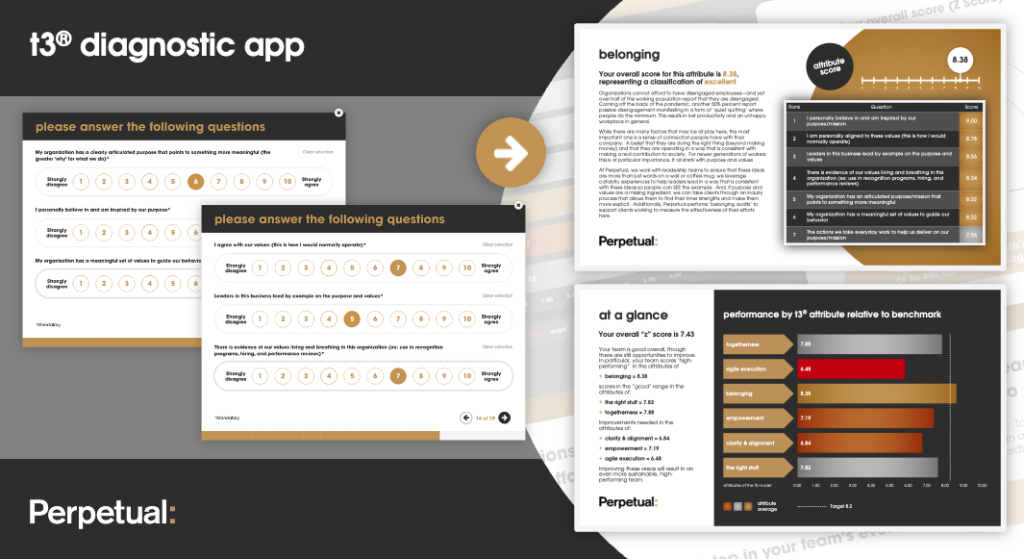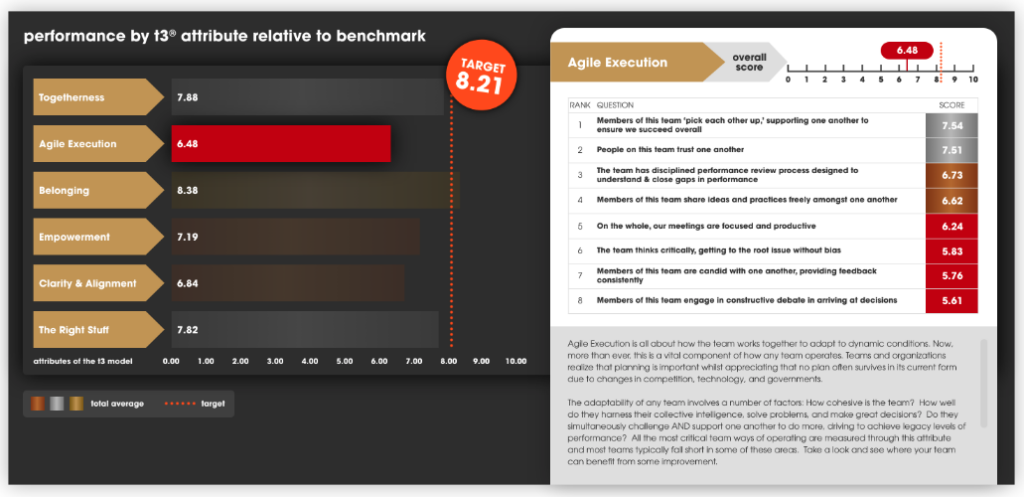Here at Perpetual (a boutique transatlantic talent advisory firm – www.beperpetual.com) we have developed a proprietary t3® (team-to-togetherness) framework that details the six attributes of organizational health and the high-performing team journey.
We have developed a research-backed diagnostic that provides a pulse-check of where your team stands against these six attributes. This, in turn, provides a clear picture of opportunities to improve team engagement in order to meet target business outcomes.
The t3® diagnostic allows team leaders to quickly create a reference baseline upon which a catalyzing improvement and growth journey can be founded.
how the t3® diagnostic works
Via our online survey, we get a quantitive view of your business or team. We couple this with qualitative interviews and optional experiential simulation data to measure the following:
- All six attributes of high-performing teams
- Level of intrinsic motivation
- Level of intellectually stimulating work
- And current motivation levels

The six attributes related to organizational health are as follows:
- The Right Stuff: This refers to having a team with the right skills, knowledge, and attitudes to achieve the organization’s goals. It’s important to carefully select and maintain team membership to ensure that everyone is aligned with the organization’s mission and values.
- Clarity & Alignment: This involves having a compelling and clearly-communicated plan that outlines the organization’s goals, priorities, and strategies. This helps ensure that everyone knows what to do and why, and that their efforts are aligned with the overall mission.
- Empowerment: This means that employees are allowed and enabled to take ownership of their work and make decisions that impact the organization. A well-designed organization with process “enablers” can help facilitate this empowerment.
- Belonging: This relates to the sense of community and shared purpose that employees feel within the organization. When employees believe that their work is the right thing to do, and that they are part of something larger than themselves, they are more likely to be engaged and committed.
- Agile Execution: This involves being willing to do whatever it takes to achieve the organization’s goals, while maintaining integrity and a focus on the greater good. This may require flexibility, creativity, and a willingness to adapt to changing circumstances.
- Togetherness: Shared adversity, experiences, and stories: This relates to the idea that when employees face challenges together and share their experiences, they build stronger relationships and a deeper sense of trust. This can help create a culture of resilience and collaboration within the organization.
To see the power of the tool, (from your own individual user perspective) you can take the first step by completing the diagnostic here: t3® diagnostic

Upon completion, you will instantly see on-screen your current level of organizational health – detailed by t3® attribute. The scores clearly will be based on your individual responses, and hence, is not a valid representation of how your whole team will score.

To discuss the power of the tool from a team or organization perspective, feel free to contact me directly at steve@beperpetual.com regarding next steps or read more on the tool and other services here – www.beperpetual.com
Organizational health can be seen as a broader and more comprehensive concept than employee engagement. While employee engagement focuses on how connected employees feel to their work and their organization, organizational health considers the entire organization’s ability to align, execute, and innovate.
Organizational health involves creating an environment where all employees are aligned around a common vision, and there is a shared understanding of how to achieve the organization’s goals. It also involves establishing effective processes and systems to execute on that vision, such as clear communication channels, decision-making protocols, and performance metrics. Additionally, organizational health requires an openness to change and innovation, with a willingness to take risks and learn from mistakes.
Overall, organizational health is crucial for an organization’s long-term success, as it helps to build a sustainable and resilient business that can adapt to changes and continue to thrive.










